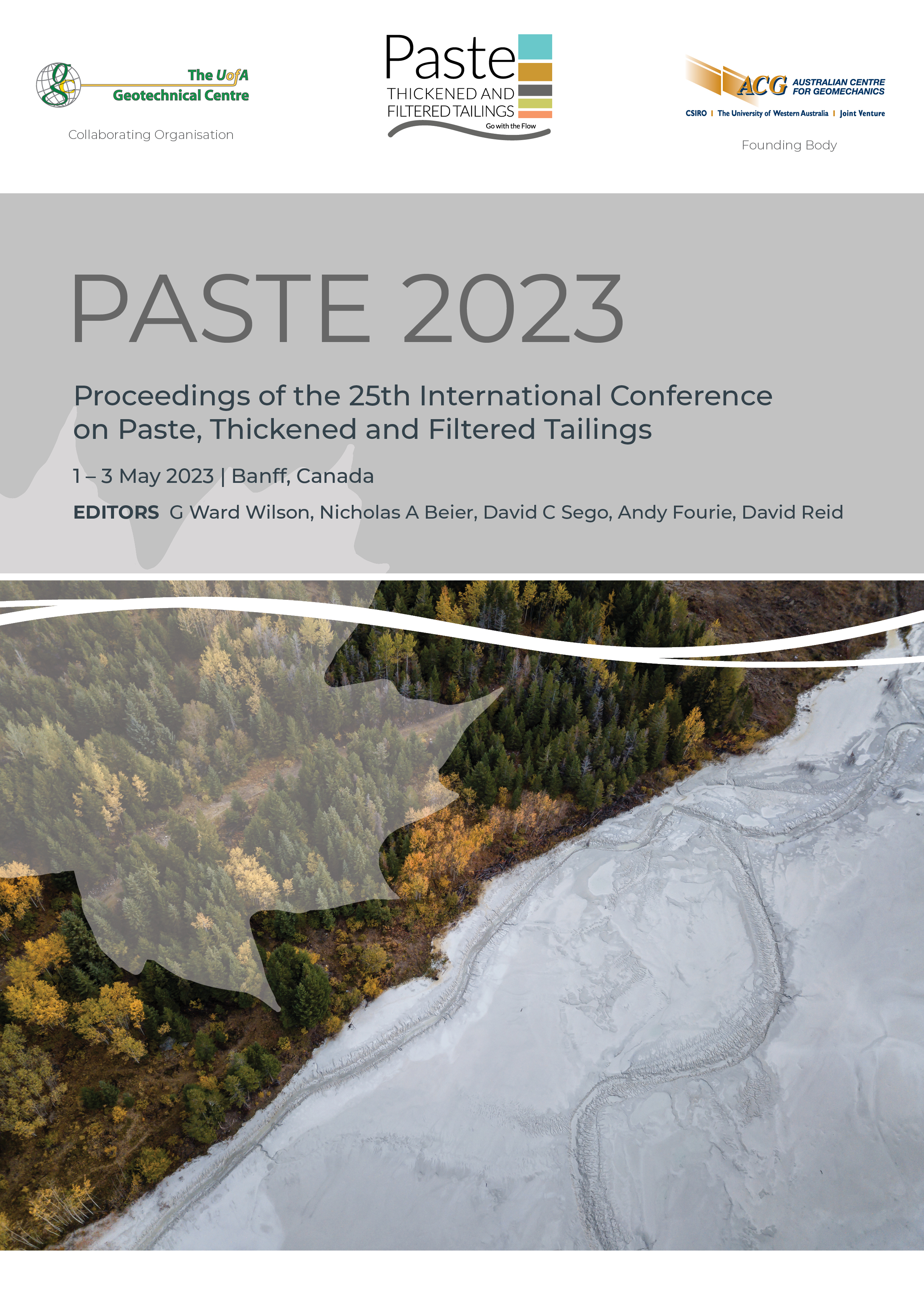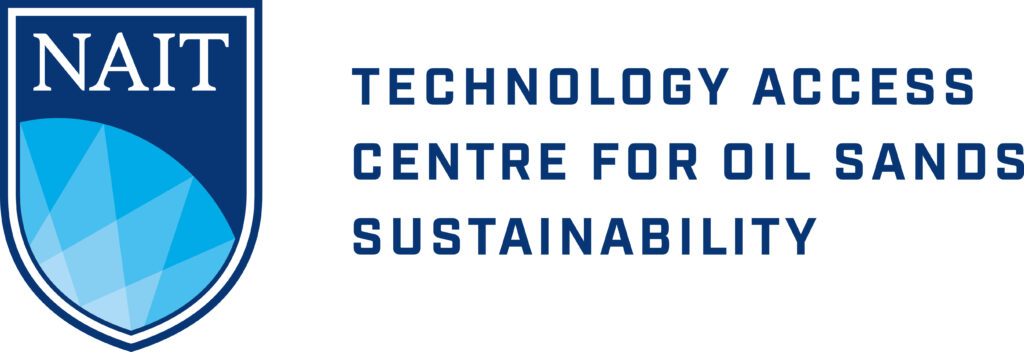Reduction of strength losses in paste backfill with sludge cake

|
Authors: Bazán, I; Ainsworth, P; Salvoldi, B; Cano, R; López, D |
DOI https://doi.org/10.36487/ACG_repo/2355_13
Cite As:
Bazán, I, Ainsworth, P, Salvoldi, B, Cano, R & López, D 2023, 'Reduction of strength losses in paste backfill with sludge cake', in GW Wilson, NA Beier, DC Sego, AB Fourie & D Reid (eds), Paste 2023: Proceedings of the 25th International Conference on Paste, Thickened and Filtered Tailings, Australian Centre for Geomechanics, Perth, pp. 187-198, https://doi.org/10.36487/ACG_repo/2355_13
Abstract:
Mine tailings containing pyrite and other acid generating rock have a large environmental impact associated with acid mine drainage. Cemented paste backfill (CPB) containing pyritic tailings has been used in several underground mining applications in the Iberian Pyrite Belt. Utilising the high pyrite tailings is often the only economically feasible and practical option for the CPB. In addition, it has the benefits of reducing the environmental impact for tailings management and storage requirements on the surface while providing stability to the underground mine. However, the associated long-term strength losses due to oxidation of the pyrite in CPB mixtures and the associated expansive reactions caused by the acid generated need to be considered and planned for accordingly so that stopes can be safely exposed and mined before too much strength is lost and without rising binder consumption. To a large extent, supplementary cementitious materials and low-aluminate cements have been used to limit long-term strength losses. However, strength deterioration cannot be stopped altogether. In a study by Paterson & Cooke for a future mine located in the Iberian Pyrite Belt, an investigation into the addition of the mine waste water treatment precipitated cake (sludge cake) in the CPB was conducted in parallel to testing CBP without the inclusion of sludge cake (i.e. 100% tailings). The polymetallic tailings (Zn, Cu and Pb) have a pyrite content exceeding 90%, which is typical of the region. This high pyrite content in the tailings causes long-term mechanical strength losses. The testwork demonstrated that, with the addition of sludge cake, the strength losses were reduced significantly. This case study incorporated the addition of sludge cake into the backfill plant design and the underground piping reticulation system. The possibility to form CPB recipes with the addition of sludge cake to the mix requires a holistic view on the design of the backfill system; stope discharge locations are constantly changing and, therefore, the pumping pressure requirements.
Keywords: cemented paste backfill, underground mine, backfill plant, underground reticulation system, unconfined compressive strength, rheology, strength loss
References:
Benzaazoua, M, Belem, T & Bussiere, B 2022, ‘Chemical factors that influence the performance of mine sulphidic paste backfill’, Cement and Concrete Research, vol. 32, pp. 1133–1144.
Boger, DV & Pashias, N 1996, ‘A fifty cent rheometer for yield stress measurement’, Journal of Rheology, vol. 40, pp. 1179–1189.
Cooke, R 2002, ‘Laminar flow settling: the potential for unexpected problems’, Proceedings of the 15th International Conference on Hydrotransport, BHR Group.
Lea, FM 2019, Lea’s Chemistry of Cement and Concrete, 5th edn, P Hewlett & M Liska (eds), Butterworth-Heinemann, Oxford.
Scrivener, KL & Taylor, HFW 1996, ‘Delayed ettringite formation: a microstructural and microanalytical study’, Advances in Cement Research, vol. 8, pp. 11–19.
Taylor, HFW 1996, Cement Chemistry, 2nd edn, Thomas Telford, London.
Zhang, MH, Chen, JK, Lv, YF, Wang, DJ & Ye, J 2013, ‘Study on the expansion of concrete under attack of sulphate and
sulphate–chloride ions’, Construction and Building Materials, vol. 39, pp. 26–32.
© Copyright 2026, Australian Centre for Geomechanics (ACG), The University of Western Australia. All rights reserved.
View copyright/legal information
Please direct any queries or error reports to repository-acg@uwa.edu.au
View copyright/legal information
Please direct any queries or error reports to repository-acg@uwa.edu.au



